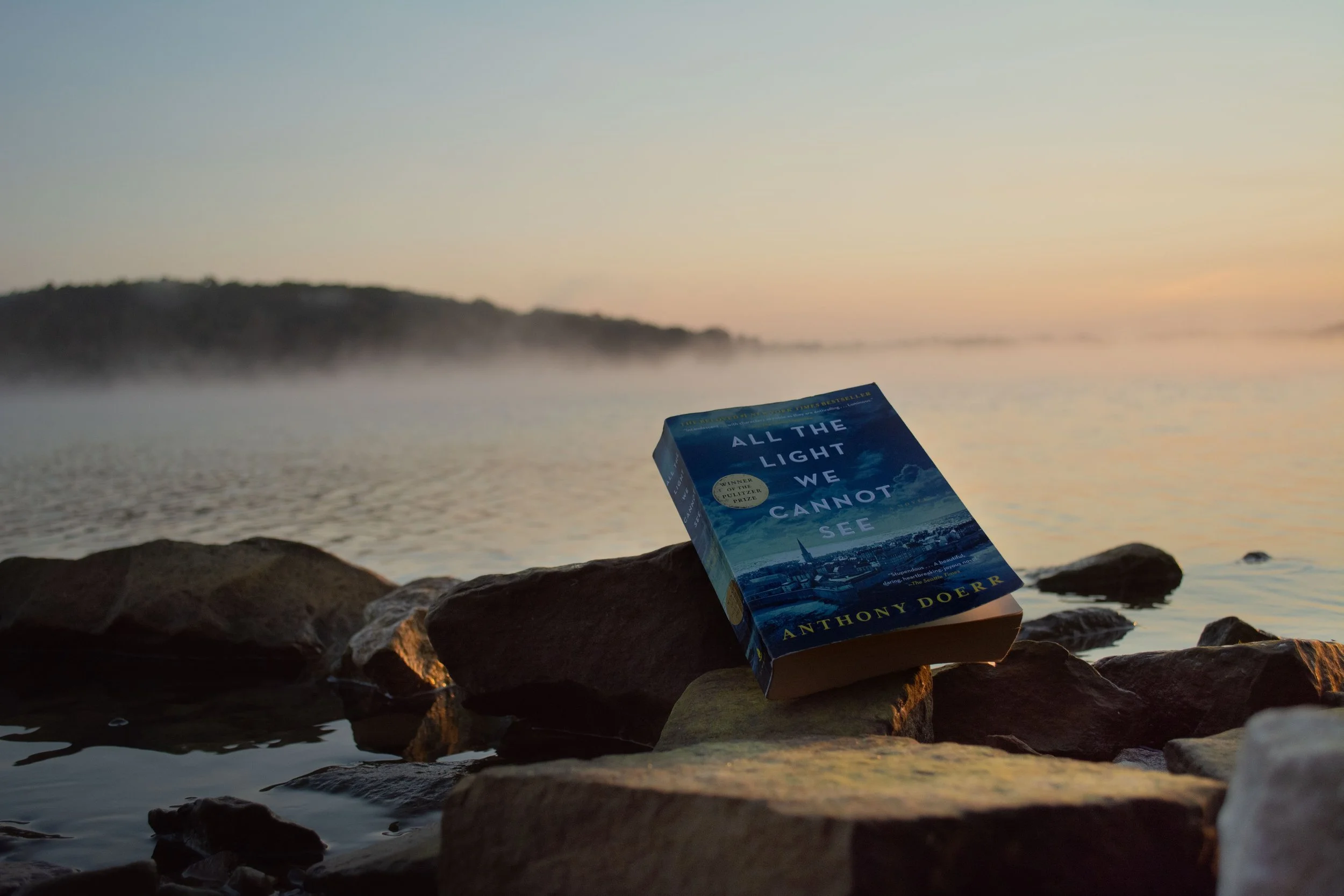Review: All the Light We Cannot See by Anthony Doerr
Overview:
Rating: 3 out of 5.
I actually finished this book before I read Dread Nation. I’ve been putting off writing the review because, to be honest, I found it a little disappointing. The writing style is unique and beautiful, but it was slow to start, it had only one character that I really cared for, and it ended in a way that just felt lackluster.
Content Warning:
All the Light We Cannot See contains war, death, child abuse, antisemitism, sexual assault, racism, gun violence, genocide, mental illness, and death of a parent.
Book Description:
All The Light We Cannot See is a historical fiction that takes place before, during, and after WWII. It focuses primarily on the parallel stories of Werner, an orphan and eventual Nazi recruit from a mining town in Germany, and Marie Laure, a blind girl who lives with her father in Paris. As the Germans advance, Marie Laure and her father (a locksmith at the local museum) are forced to leave Paris, taking what they believe to be a precious, almost mythological jewel with them to safety. Meanwhile, Werner experiences the horrors of a prominent Hitler’s Youth Academy, his knowledge of radios later landing him a position tracking down resistance broadcasts. Both stories intersect in Saint-Malo, a walled off city in France that has become subject to air raids. Here, the characters discover that they have a unique connection to one another, and both of their lives are changed forever.
On the Author’s Prose:
No doubt about it, Doerr’s writing is beautiful. His descriptions of inanimate objects and scenery are poetically striking. Not to mention that, at times, I wanted to blow up dialogue from the characters to put on my wall. I mean, did you see the quote at the top of this post? Epic. Ultimately, it was Doerr’s use of language that kept me reading when I was otherwise mind-numbingly bored with the plot itself
On The Characters and Pacing:
This book was SLOW to start. Only around page 200 did things pick up and the suspense begin to build. In part, this is due to the large of amount of time it focuses on the pre-WWII period of the story, where the larger external conflicts that dominate later chapters are not yet present. However, I think the slow crawl of the book can also be attributed to an absence of the main characters’ agency. Werner and Marie Laure are depicted as helpless children who are subject to the whims of the adults around them. Even Marie Laure, who’s father loves her dearly, doesn’t have any say in where they’re going or when she’s allowed to step outside once they leave Paris. This consistent lack of influence that either character has on their surroundings often leaves the reader without interesting conflict and the building of in-depth relational dynamics.
I will note that Madam Manec (the house keeper who works for Marie Laure’s uncle) was the first character who really caught my attention, precisely because she does have agency. She takes no sass from Etienne, has sway with all the local women, and basically harbors the resistance in her kitchen. So cool.
On The Ending [Spoilers]:
For a book that takes forever building up the ending, this one sure sped through the climactic moments. Only in the last 50 pages or so do we see our main characters meet, and even that is rushed in a few short chapters. Things quickly move on to Werner’s premature death and the post-WWII section of the book before any of what was just read can really sink in and make an impact.
Speaking of the post-WWII section of the book, what was the point? We get an unnecessary re-accounting of an sexual assault that Werner’s sister, Juda, experienced (it was totally out of left field and not all crucial to the plot), a scene between her and Marie Laure where they reminisce about Werner, and then the author basically tells us that everything the characters experienced will be forgotten in time. Again: What. Was. The. Point.
Ultimately, the manner in which this book is wrapped up is so beyond frustrating, especially considering the amount of time and energy put into getting through it. I’m more than happy to be done with it so I can move onto something a little more satisfying.
